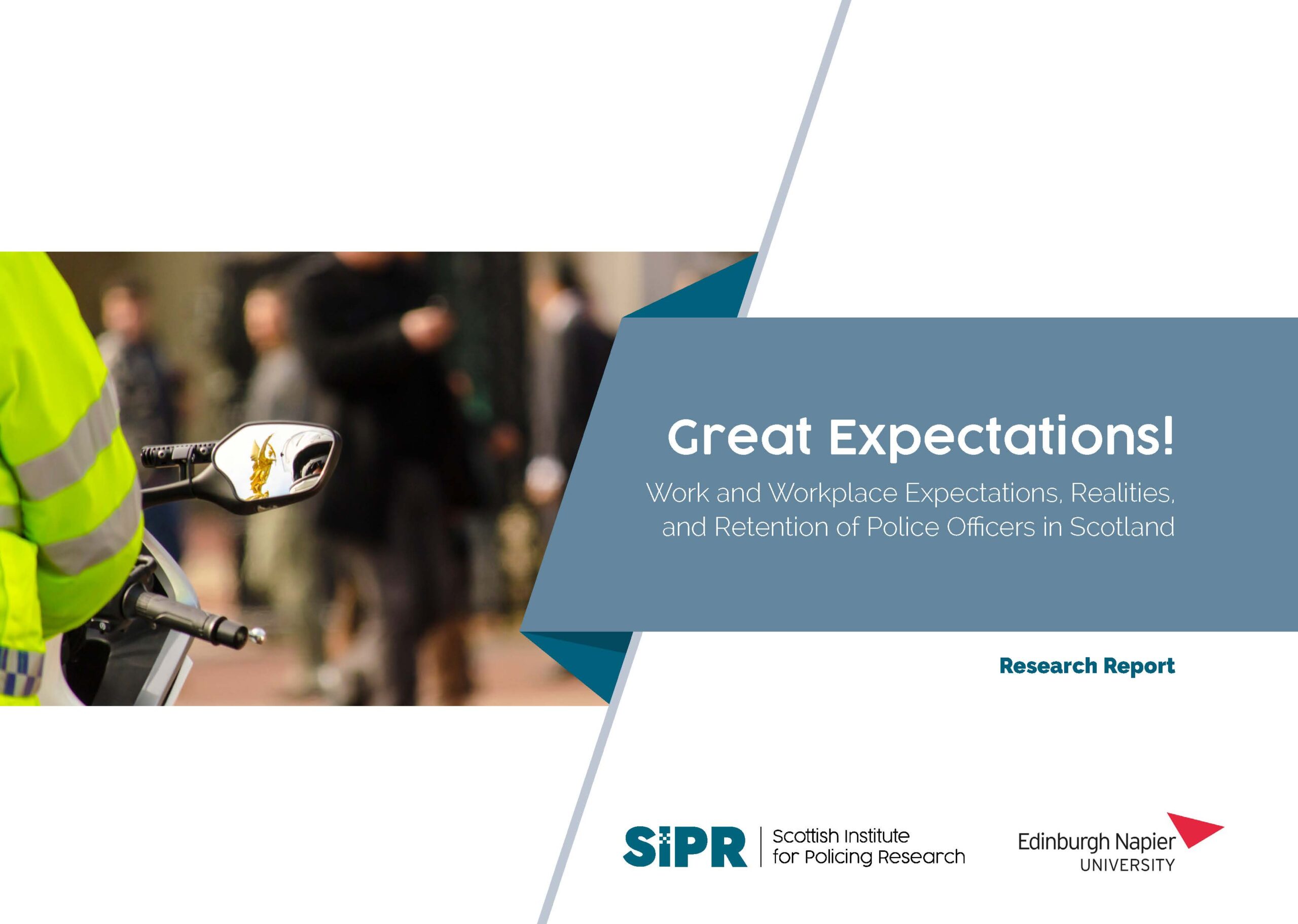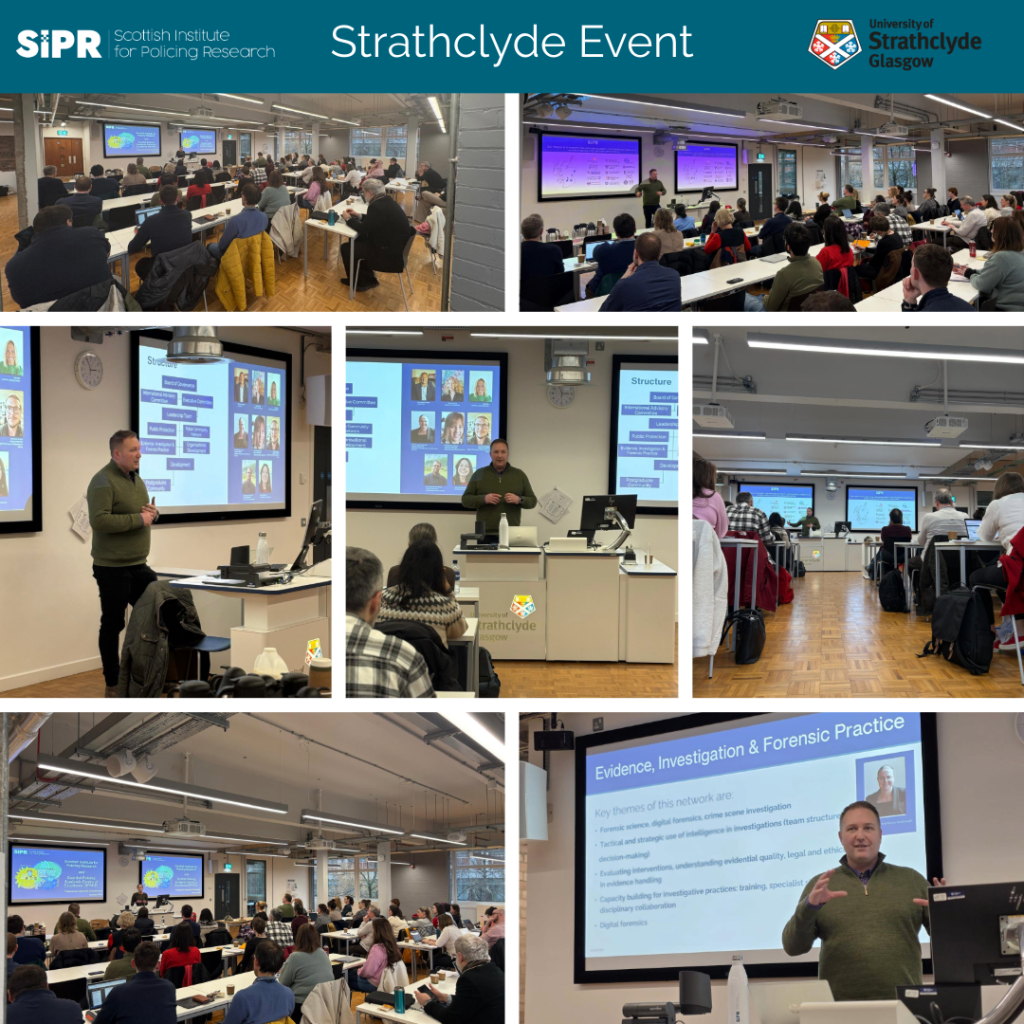The Scottish Institute for Policing Research are delighted to publish “Great Expectations! Work and Workplace Expectations, Realities, and Retention of Police Officers in Scotland” led by Professor Kirsteen Grant (Edinburgh Napier University) with co-investigators Dr Britta Heidl (Edinburgh Napier University), Professor Christof Backhaus (Technische Universität Braunschweig), and Diane Vincent (Edinburgh Napier University).
This work was funded by the Scottish Institute for Policing Research (SIPR) as part of the “Developing Effective Policing Systems” grant scheme which was established to explore increasing and changing demands on policing.
This important research compared the work and workplace expectations of probationers (new recruits) and early career officers (with up to two years of experience) with the workplace realities and lived experience of established police officers. Using a mixed methods design, and linked to factors concerning officers’ job satisfaction, wellbeing and retention, the research examined the extent to which the expectations of new and early career officers are realistic, understood, and are being fulfilled for established officers.
The research found that probationers’ hopes for their job were geared around having a challenging, rewarding and varied role in which they can ‘make a difference’, where they are treated inclusively and with respect, and where they have opportunities to develop, grow and progress. However, many established officers reflected that their job has not fully measured up to the job they envisaged, and that with hindsight they would choose a different career. Where the eventual job does not match up to initial high expectations, current probationers and early career officers are at greater risk of choosing to leave Police Scotland.
In line with concerns about increasing voluntary resignations, preserving knowledge and experience, and improving officer wellbeing, seven key recommendations have been provided from this research including:
- Managing expectations at the point of recruitment and initial training to ensure an accurate representation of the realities of being a police officer.
- Developing and embedding management and leadership principles and behaviours (for example, a 360-degree assessment process for sergeant level and above).
- Reviewing and evaluating the effectiveness of current online training as well as the overall provision of learning methodologies.
- Reviewing and updating current developmental pathways and promotions processes to ensure consistency, transparency and fairness.
- Developing a strategic talent management and succession planning framework to ensure talent is identified and nurtured at all levels.
- Conducting a multi-level review of the impact of employee support and wellbeing provision.
- Greater awareness of and vehicles for early career ‘employee voice’ to support understanding of hopes, aspirations and expectations, as well as alleviating fears and concerns.
Professor Kirsteen Grant said “this research shines a light on the contemporary needs and job expectations of a new generation of police officers. Probationers were generally excited about and open to the idea of a long-term career within Police Scotland, but only for as long as they believe that the organisation continues to look after their welfare needs, that the job fits around their life, and that it has no long-term adverse impact on their health and wellbeing. We hope that this research will help provide important insights to Police Scotland when developing the next iteration of its People Strategy.” The full report can be accessed here https://sipr.ac.uk/wp-content/uploads/2024/10/Great-Expectations-Final-Report.pdf



